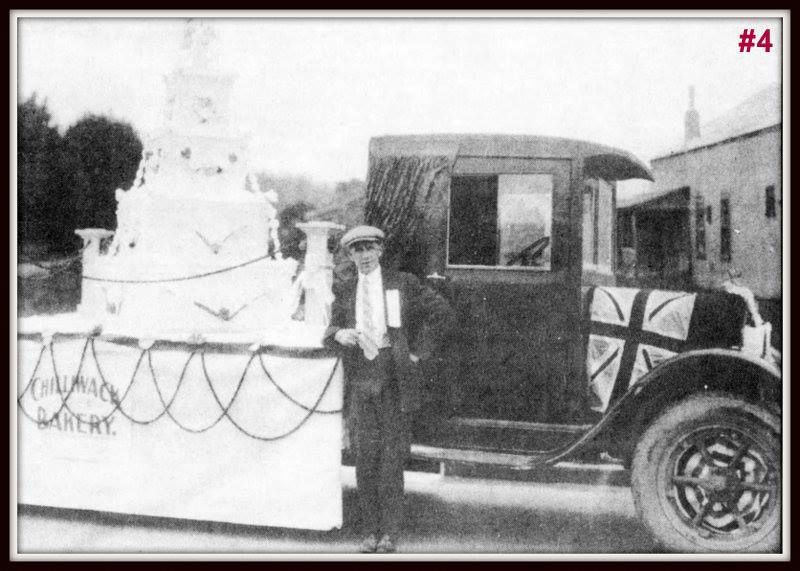A Dark Spot in Our Canadian History
- Laura Reid
- Apr 1, 2023
- 3 min read
Updated: May 31, 2023
The month of April is historically significant; but the events that occurred in April 1876 and April 1884 were not shining moments in Canadian history.
On April 12, 1876, the federal government of the Dominion of Canada passed the Indian Act. This action by the government was a mis-guided attempt to assimilate First Nations people into colonial society and provided the government exclusive authority over their everyday lives. The Indian Act also extinguished Indigenous self-government that existed prior to European settlement.
In April 1884 the potlatch ban was implemented. In the third section of the Indian Act, signed on April 19, 1884, it was declared that:
Every Indian or other person who engages in or assists in celebrating the Indian festival known as the "Potlatch" or in the Indian dance known as the "Tamanawas" is guilty of a misdemeanor, and liable to imprisonment for a term of not more than six nor less than two months in any gaol or other place of confinement; and every Indian or persons who encourages ... an Indian to get up such a festival ... shall be liable to the same punishment.
Formal requests to host potlatches were refused by the federal government and potlatches were forced to be held “underground”. Backlash ensued from First Nations communities and in 1896, Bill Uslick, a Sto:lo man from Chilliwack was the first person to be charged under the Act. He was sentenced to two months in prison. Although the ban proved to be ineffective and caused cultural damage, the ban remained in effect until 1951 - when the Indian Act was amended and the ban on potlatch was finally removed.
New Westminster, B.C., 3 March 1896 MONTHLY REPORT OF FRANK DEVLIN, INDIAN AGENT
For month ending 28th February 1896 [To] A. W. Vowell, Esq., Indian Superintendent, Victoria.
“Sir, I have the honor to report for your information that during the past month I have been engaged in the usual routine work connected with this Agency. The potlatch question has been very much discussed by the Indians of this District during the past two months. The great majority of Indians of this Agency are opposed to potlatching, and I feel certain that if they are dealt with firmly, potlatching will soon be a thing of the past.
When inquiring into the potlatch given by Bill Uslick at Chilliwack recently, an Indian named Commodore [?], of Kultus Lake, and who is one of the most intelligent Indians on that Reserve, told me I could not stop potlatching, that the Indians would not stop it. I gave him, and all the other Indians present, to understand that they would have to stop it; otherwise that they would be punished severely.
After Bill Uslick was tried and sentenced to two months’ imprisonment, Commodore came to me and said he did not believe before it was against the law to give a potlatch, that he only thought it was the priests who were trying to put it down, but now that he knew it was against the law, that potlatching would cease.
I have the honor to be, sir, your obedient servant,
Frank Devlin,
Indian Agent.”

Nearly 100 years later, on April 1, 1982, the Assembly of First Nations was formed. “The Assembly of First Nations (AFN) is a national advocacy organization that works to advance the collective aspirations of First Nations individuals and communities across Canada on matters of national or international nature and concern.” (Source: AFN website)
It may have taken nearly a century to embark on this journey of understanding, acknowledgment, reconciliation and healing but let those dark spots on our history never be erased.
“Those that fail to learn from history are doomed to repeat it.” Winston Churchill
Image Credit: Chilliwack Progress Archives, November 20, 1968
If you want to learn more about the history of the Potlatch, click on this link from the University of Victoria.
·
Sources:
Hou, Charles (1983). To Potlatch Or Not to Potlatch: An In-depth Study of Culture-conflict Between the B.C. Coastal Indian and the White Man. British Columbia Teachers' Federation.
Carlson, Keith Thor (1997). You are Asked to Witness : the Stó:l̄o in Canada's Pacific Coast History. Teacher's Guide. Sto:lo Heritage Trust. ISBN 9780968157732.




Comments